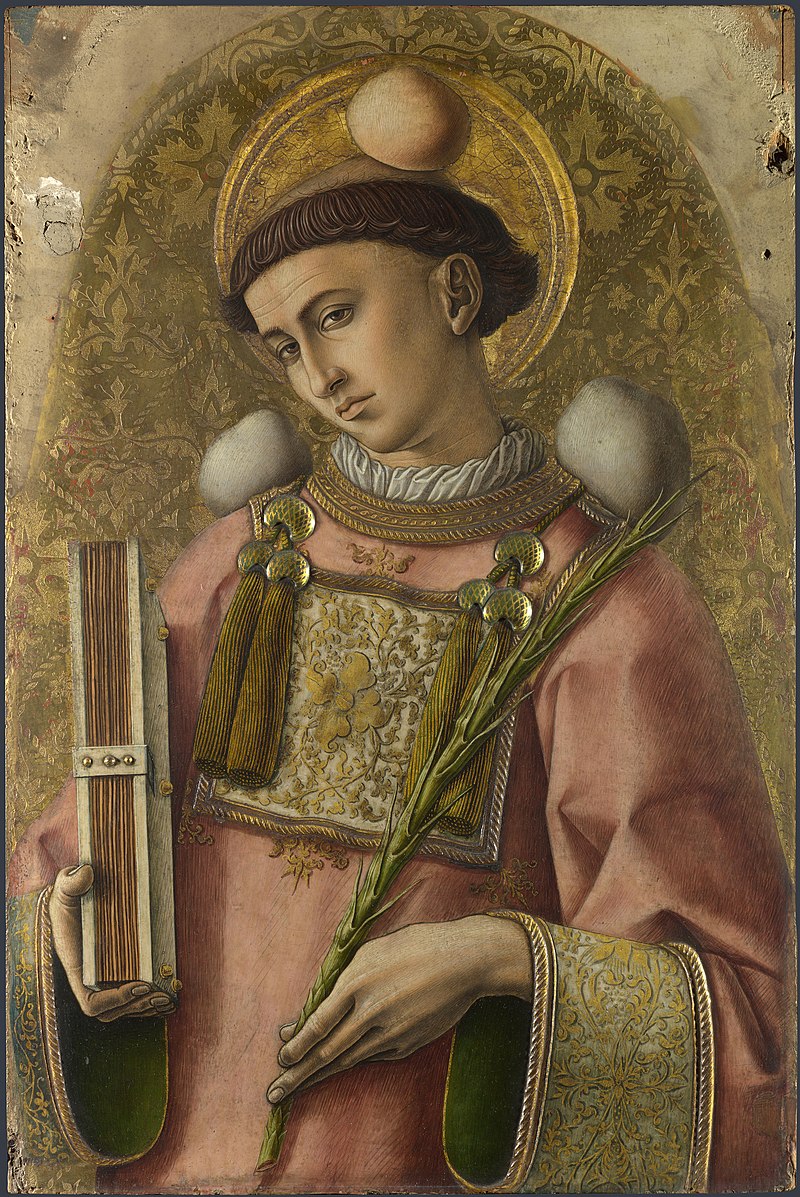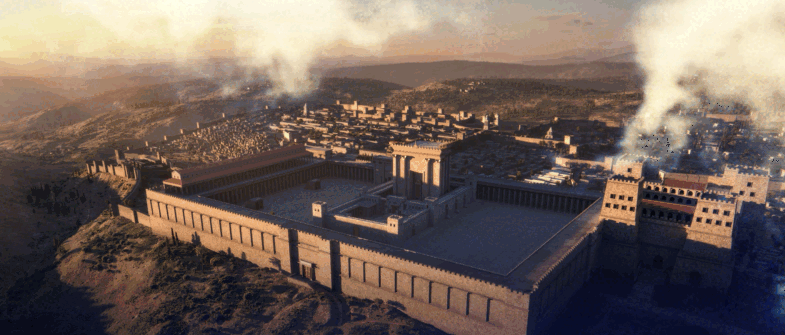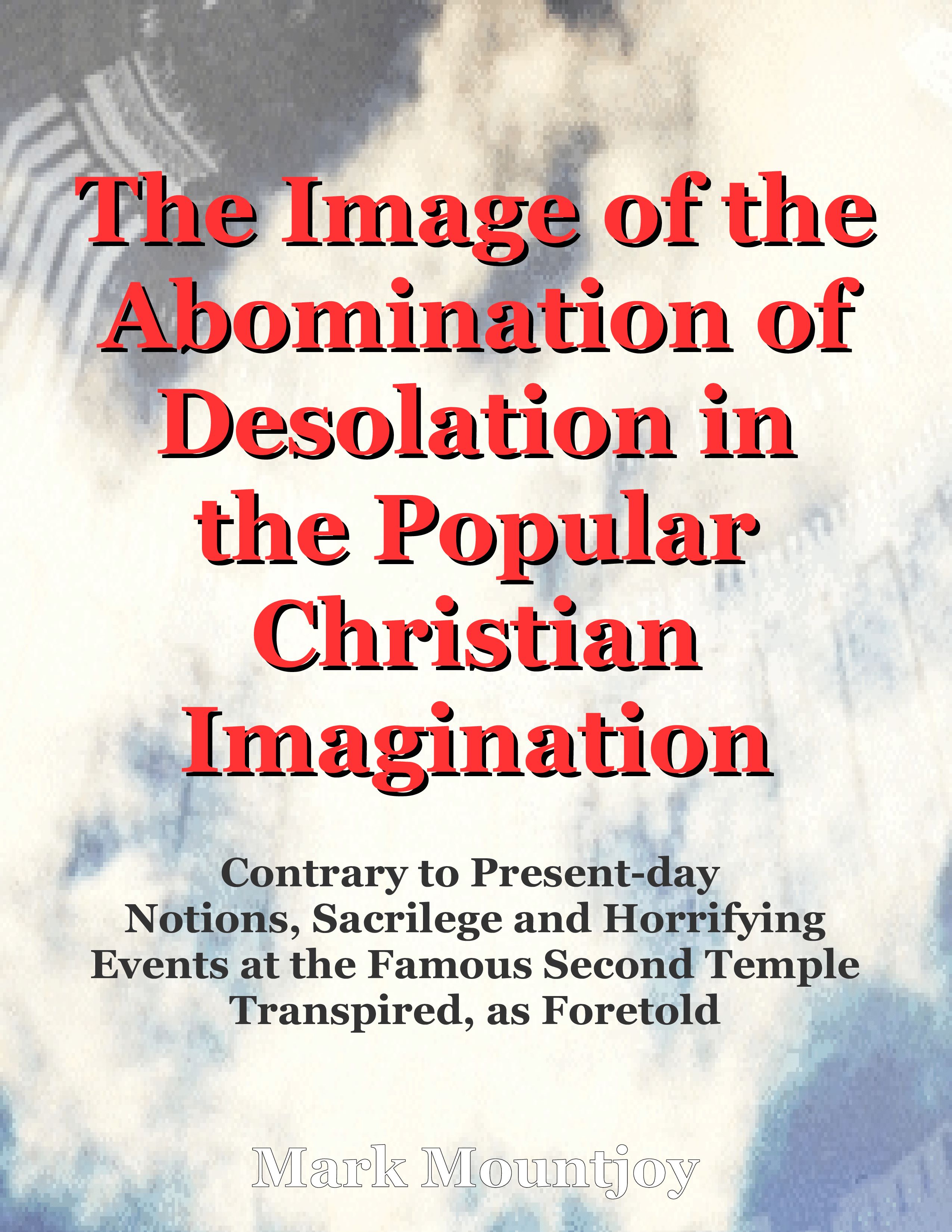ACCORDING TO THE ANGEL GABRIEL THE
SECOND TEMPLE WOULD BE THE SCENE
OF IMPIETY AND THOSE WHO BUILT IT
WOULD ALSO END UP DESTROYING IT
Saint Stephen's Confrontation with the Jews:
A Mirror to Their Spiritual Blindness
by Mark Mountjoy
THE STORY OF SAINT STEPHEN'S MARTYRDOM, as recounted in Acts 6 and 7, reveals a profound irony in the spiritual state of the Jewish leadership during the early Christian era. Their offense at Stephen's words about the Second Temple demonstrates a tragic misunderstanding of their own prophetic heritage and a misplaced sense of religious pride.
The Jews had no righteous grounds for their indignation. The Angel Gabriel had already foretold that by their own hands, the Temple would be defiled, desecrated, and ultimately destroyed (Daniel 9:95-27). This prophecy should have been well-known among the religious elite, yet they seemed to dismiss its possibility, clinging instead to a false sense of security in the Temple's perceived inviolability.
Their attachment to the Second Temple was deeply flawed. Rather than revering it as God's dwelling place, they had come to love it more for its gold and beauty – its outward appearance rather than its spiritual significance. Jesus had named their sin when he said,
Rather than revering it as God's dwelling place, they had come to love it more for its gold and beauty – its outward appearance rather than its spiritual significance. Jesus had named their sin when he said,
"Woe unto you, ye blind guides, which say, Whosoever shall swear by the Temple, it is nothing; but whosoever shall swear by the gold of the Temple, he is a debtor! Ye fools and blind: for whether is greater, the gold, or the Temple that sanctifieth the gold? And, Whosoever shall swear by the Altar, it is nothing; but whosoever sweareth by the gift that is upon it, he is guilty. Ye fools and blind: for whether is greater, the gift, or the Altar that sanctifieth the gift? Whoso therefore shall swear by the Altar, sweareth by it, and by all things thereon. And whoso shall swear by the Temple, sweareth by it, and by him that dwelleth therein. And he that shall swear by heaven, sweareth by the throne of God, and by him that sitteth thereon." (Matthew 23:16-22).
This misplaced devotion led to a corruption of the Temple's purpose. It became a place of exploitation, where people were robbed, where tithes were extracted through violence, and where hypocritical judgments were passed – condemning others for sins they themselves committed in secret.
In this context, Stephen's words in AD 36 touched a raw nerve. The Apostles had already faced physical reprimands from the Sadducees on two occasions, yet the message persisted. When Stephen suggested that Jesus would destroy the Temple and change the customs of Moses, it was more than the religious leaders could bear. They arrested him and brought him before the Sanhedrin, giving him an opportunity to speak in his defense.
Stephen's response, far from being a mere self-defense, became a powerful indictment of Israel's spiritual history. He began by recounting God's dealings with Abraham and the patriarchs, emphasizing God's work outside the land of Israel and beyond the Temple. He spoke of Moses and the Exodus, reminding them that God's presence was not confined to a building but accompanied His people in the wilderness.
Crucially, Stephen quoted the prophet Isaiah:
"Heaven is my throne, and the earth is my footstool. What kind of house will you build for me? says the Lord. Or where will my resting place be? Has not my hand made all these things?" (Acts 7:49-50)
This statement cut to the heart of their misunderstanding. Stephen was pointing out that God's presence and work could not be limited to a physical structure, no matter how grand or beautiful.
He then delivered his most stinging rebuke:
"You stiff-necked people! Your hearts and ears are still uncircumcised. You are just like your ancestors: You always resist the Holy Spirit! Was there ever a prophet your ancestors did not persecute?" (Acts 7:51-52)
Stephen's words held up a mirror to the Jewish leaders, showing them their own stubborn resistance to God's message throughout history. He accused them of betraying and murdering the Righteous One, Jesus, just as their ancestors had persecuted the prophets who predicted His coming.
This powerful testimony revealed the true state of their hearts. Their anger at Stephen's words about the Temple was merely a symptom of a deeper spiritual malady – a resistance to God's work and a refusal to recognize their own need for repentance.
In the end, Stephen's martyrdom served as a powerful testament to the truth he proclaimed. His vision of Jesus standing at the right hand of God, and his Christ-like forgiveness of his killers, demonstrated the reality of the new covenant he preached – a covenant not bound by walls of stone, but written on the hearts of believers.
Related
[Click the image to review]


